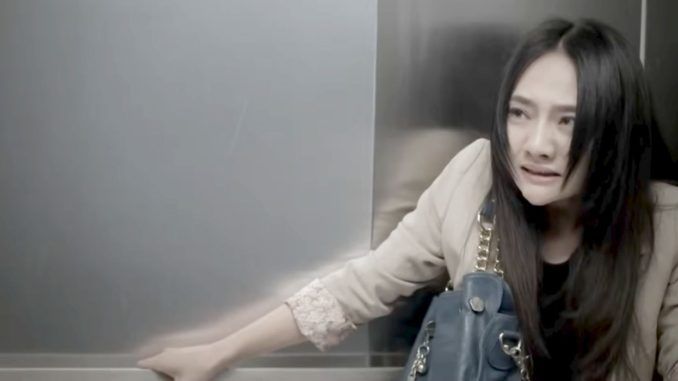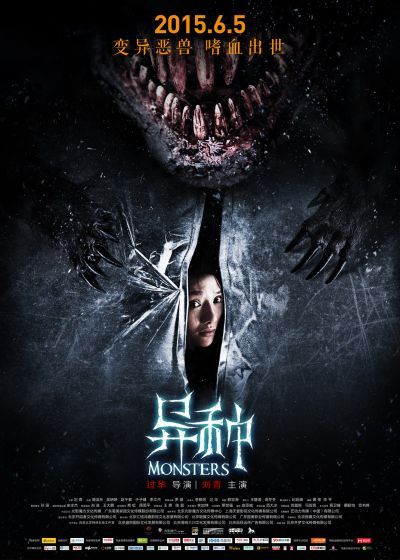
Rating: B-
Dir: Hua Guo
Star: Qing Liu, Zhou Haodong, Wu Yanyan, Zhao Qianzi
a.k.a. Elevator Monster
This pre-dates the current wave of Chinese films along similar lines, and didn’t make much of a splash, taking only about $150,000 in its home land. But you can argue a case for it simply being ahead of its time. On the other hand, the alternate title by which it was circulating on YouTube is more accurate, because the count of threats to its heroine stops at one (1). Mind you, the count of on-screen characters basically stops at one (1) as well. For the gimmick is, it unfolds entirely in the lift servjng a high-rise apartment complex. Bitchily unpleasant real-estate developer Jia Ying (Liu – amusingly, credited on-screen as “Lucy Liu”!) is heading to a property to retrieve her cellphone.
Then things go very wrong. As in, the entire building collapses, and she regains consciousness buried in the remnants of the elevator, which is now in the basement, under tons of rubble. Though Jia never got her own phone, she has a work one, albeit damaged in the descent. She can now only call people in the history. That’s a problem, because she has been a bit of a cunt, to be honest, and consequently few people want to assist her. Doesn’t help that the company for whom she works is responsible for the collapse. As a result, her boss would rather she didn’t survive. That would ensure Jia doesn’t blow the whistle on the dodgy construction techniques which led to the accident.
 As the title suggests, the situation is not improved by the presence of a creature down there with her. It isn’t gigantic – probably around the size of a big dog – but is aggressive and has sharp teeth and claws. Think something like a giant salamander, and the film implies it may also be the company’s fault, perhaps being a result of the tons of toxic chemicals dumped on site. Especially after Jia cuts herself and begins to bleed, the monster is increasingly keen on getting at the Chinese spam in a can. It leads to a two-pronged survival story, with the heroine having to cope with an increasingly untenable situation, while the script makes some pretty unsubtle points about the perils of unfettered, toxic capitalism.
As the title suggests, the situation is not improved by the presence of a creature down there with her. It isn’t gigantic – probably around the size of a big dog – but is aggressive and has sharp teeth and claws. Think something like a giant salamander, and the film implies it may also be the company’s fault, perhaps being a result of the tons of toxic chemicals dumped on site. Especially after Jia cuts herself and begins to bleed, the monster is increasingly keen on getting at the Chinese spam in a can. It leads to a two-pronged survival story, with the heroine having to cope with an increasingly untenable situation, while the script makes some pretty unsubtle points about the perils of unfettered, toxic capitalism.
It is undeniably contrived, the script having to tip-toe its way through a minefield of “Why isn’t she…?” and “What about..?” elements. That said, it does a remarkably good job of sustaining my interest. Even if she’s not the Lucy, Liu does very well, considering she is front and centre, almost every second of the movie. It’s especially impressive as I can’t find any indication of her having any other credits (though Chinese info is often unreliable). The age of this means the monster is almost all practical, and the better for it, as some dodgy CGI fire proves. This is a smaller scale than most such films. Yet it proves that bigger is not necessarily better.
This review is part of our feature, When Chinese Animals Attack.
